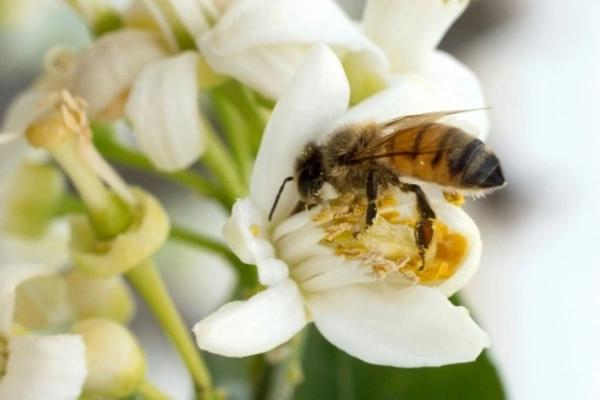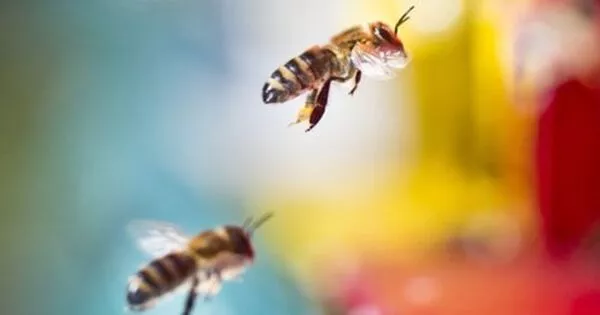While bees do convert nectar into honey through enzymatic activity and water evaporation, the process is not similar to the brewing of alcoholic beverages such as beer. Brewing is typically accomplished through fermentation, in which yeast consumes sugars and produces alcohol. This process is not observed in honey-making bees.
Cellophane bee microbiomes are among the most fermentative known from the insect world, according to researchers at the University of California, Irvine. These bees are known for their fascinating behaviors and important ecological roles as pollinators. They are named after their use of cellophane-like materials to line their subterranean nests. Researchers have discovered yet another aspect of their biology that adds to their allure.
Cellophane bees “brew” a liquid food for their offspring, which is kept in chambers called brood cells, according to a study published in Frontiers in Microbiology. Lactobacilli bacteria dominate the microbiome of these brood cells, which are known for their role in fermenting foods such as yogurt, sauerkraut, and sourdough bread. The researchers discovered that these bacteria are highly active in the food supplies of cellophane bees, where they most likely serve as a source of nutrients for developing larvae.
We know lactobacilli are important for food fermentation, but finding wild bees that use them in essentially the same way as humans was really surprising. Most of the 20,000 bee species get their nutrition from nectar and pollen, but we suspect lactobacilli are also important for these cellophane bees. They have successfully transitioned from herbivores to omnivores.
Tobin Hammer
“This discovery is quite remarkable,” said Tobin Hammer, lead author and assistant professor of ecology and evolutionary biology. “We know lactobacilli are important for food fermentation, but finding wild bees that use them in essentially the same way as humans was really surprising. Most of the 20,000 bee species get their nutrition from nectar and pollen, but we suspect lactobacilli are also important for these cellophane bees. They have successfully transitioned from herbivores to omnivores.”
The study also discovered that cellophane bees’ food supplies have much higher bacterial biomass than other bee species, which corresponds to the unusually fermentative smell that emanates from their brood cells. These lactobacilli-dominated microbreweries of cellophane bees could have significant implications for bee health as well as the ecology of the ecosystems in which they live.

“It was intriguing to find that cellophane bees use a strategy called ‘spontaneous fermentation,’ which is how certain fermented foods like sauerkraut are made. Rather than passing on starter cultures from generation to generation, they use wild strains of lactobacilli that are ubiquitous in flowers,” said Hammer. “It suggests that fermentation-based symbioses like this one can evolve without domestication. What makes these bees special is that they’ve figured out how to create a favorable environment in which lactobacilli can grow really well.”
This study highlights the importance of studying the microbiomes of insects, which are often overlooked in favor of more familiar animals like birds and mammals, despite playing an enormous role in ecosystems the world over. By understanding the complex interactions between microbes and their insect hosts, scientists can gain new insights into the biology of these important animals and the ecosystems that they inhabit.
However, scientific knowledge is always advancing, and new discoveries can reshape our understanding of the natural world. It’s possible that recent research or future studies may have uncovered fascinating aspects of bees’ behavior or metabolic processes related to brewing-like activities.
















